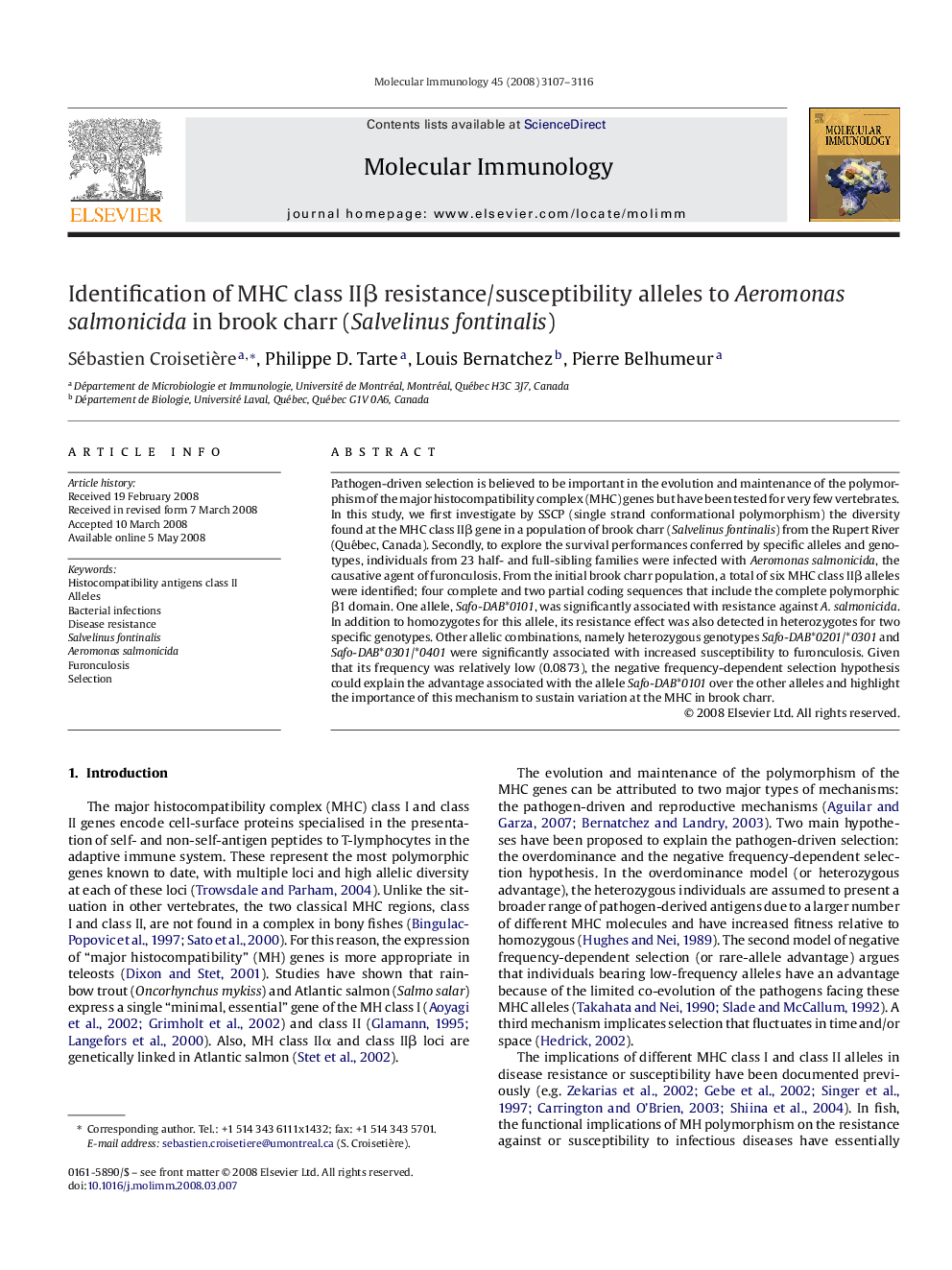| Article ID | Journal | Published Year | Pages | File Type |
|---|---|---|---|---|
| 2832644 | Molecular Immunology | 2008 | 10 Pages |
Pathogen-driven selection is believed to be important in the evolution and maintenance of the polymorphism of the major histocompatibility complex (MHC) genes but have been tested for very few vertebrates. In this study, we first investigate by SSCP (single strand conformational polymorphism) the diversity found at the MHC class IIβ gene in a population of brook charr (Salvelinus fontinalis) from the Rupert River (Québec, Canada). Secondly, to explore the survival performances conferred by specific alleles and genotypes, individuals from 23 half- and full-sibling families were infected with Aeromonas salmonicida, the causative agent of furonculosis. From the initial brook charr population, a total of six MHC class IIβ alleles were identified; four complete and two partial coding sequences that include the complete polymorphic β1 domain. One allele, Safo-DAB*0101, was significantly associated with resistance against A. salmonicida. In addition to homozygotes for this allele, its resistance effect was also detected in heterozygotes for two specific genotypes. Other allelic combinations, namely heterozygous genotypes Safo-DAB*0201/*0301 and Safo-DAB*0301/*0401 were significantly associated with increased susceptibility to furonculosis. Given that its frequency was relatively low (0.0873), the negative frequency-dependent selection hypothesis could explain the advantage associated with the allele Safo-DAB*0101 over the other alleles and highlight the importance of this mechanism to sustain variation at the MHC in brook charr.
